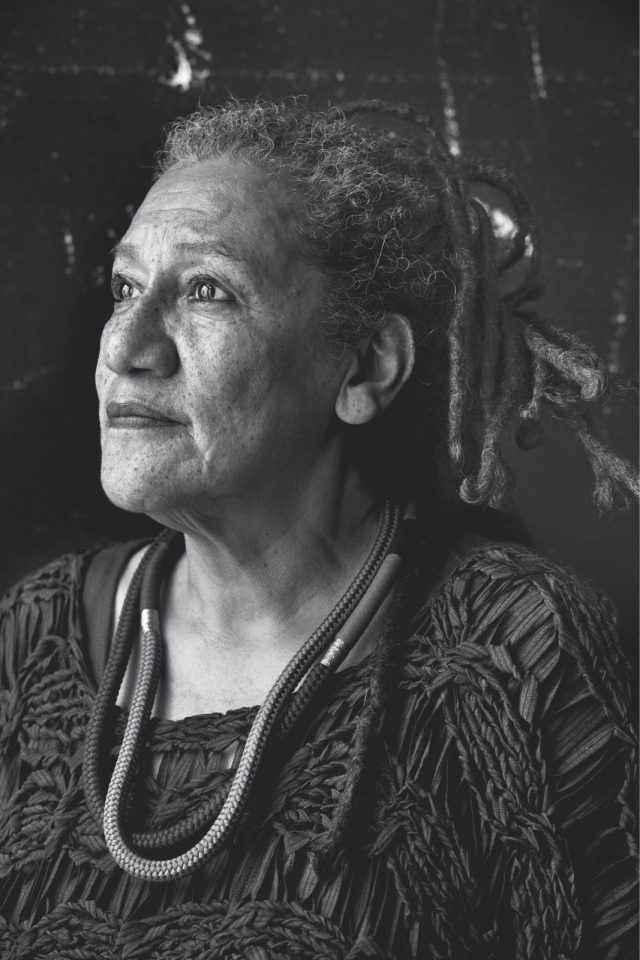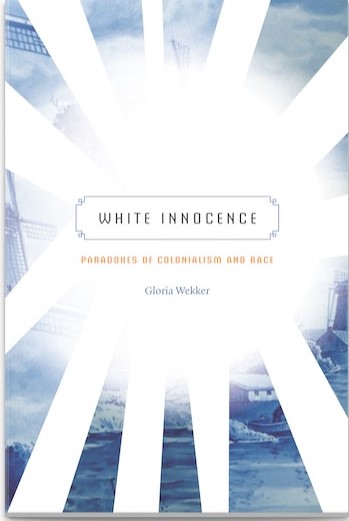Gloria Daisy Wekker is a Surinamese-Dutch anthropologist/writer which specialises in gender studies, Caribbean studies and the studies of sexuality, ethnicity and postcolonialism (diaspora). She was born in Paramaribo and moved to the Netherlands with her family in 1951. She initially started studying law in Nijmegen, but eventually went on to study cultural anthropology at the University of Amsterdam. She obtained her doctorate in Amsterdam in 1981, specializing in the Caribbean, women's studies and clinical psychology.
In 1992, Wekker received her Ph.D. degree from the University of California, Los Angeles with her thesis: I am gold money (I pass through all hands, but I do not lose my value): The construction of selves, gender and sexualities in a female, working-class, Afro-Surinamese setting. This work was published in Dutch in 1994 under the title: I am a gold coin. Subjectivity and sexuality of lower-class Creole women in Paramaribo. After obtaining her Ph.D. degree in the United States, she worked in the Netherlands for the Ministry of Welfare, Public Health and Culture, among others. She also became involved in the activism surrounding the second feminist wave. In 1984, together with Tania Leon, Tineke Sumter and José Maas, she founded the action group "Sister Outsider" for black, lesbian women. Sister Outsider was named after the eponymous collection of essays by the American feminist and writer Audre Lorde. In 2001 Gloria Wekker became the first colored female professor at Utrecht University. She held the Aletta Chair in Gender and Ethnicity, an initiative of the former International Information Center and Archives for the Women's Movement (IIAV), which in 2013 was merged into Atria, a knowledge institute for emancipation and women's history. Wekker also became director of the expertise center Gender, Ethnicity and Multiculturalism in higher education.
Before actually watching the video and getting a better understanding of what I read, I came to a conclusion that I started reading the book without any prejudice. I am choosing to read and analyse everything that I am reading and understanding not as ‘they’ being a person of colour, but as a being overall. Taking the perspective in not taking any conclusions or prejudices. Thinking bout, the different perspectives there are and how this affects the image that I have of myself and partake in society. How is affects the authenticity I create for myself and my heritage. The feeling the text gave me was a feeling of understanding but more academic level of consciousness in the problems we as citizens face in the Netherlands. And how the Netherlands as a country shoves race as a subject under the rug. From what I have experienced is that me being ‘they’ I will be accepted and seen as equal once we find an understanding of getting along and agreeing on certain subjects. But as soon as there is a matter/problem that reflects back on where the specific person is from and you’re not seen as an equal or treated as one. And creates a situation to dehumanize your being and position you have in this country. Which refers back to my favourite quote of the introduction chapter: ‘’ If you want to be equal to us, don’t talk about the differences; but if you are different from us, than you are not equal’’ (Prins 2002).
What interests me the most about the introduction chapter is, that the overall understanding that I got is that the Netherlands as a European country tries to create the perception of being understandable, equal in very shape or form. But neglects the backs and people that the country has broken to create the image/position that they have today. By dehumanizing others and themselves to create and reconstruct the system to appear that works. To me there isn’t room to create understanding how post colonialism and diaspora still affects this country. I’m not saying or acting as if I know a lot of how the system is build, but the idea that is create amongst ‘being and seeing as equals’ has had a lot of impact a major population of this country thinks and acts.

